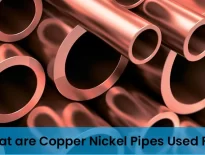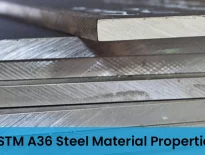Boiler tubes are an essential component of boilers, which are devices used to generate steam or heat by transferring energy to water. Found in industrial plants, power generation facilities, and residential heating systems, boiler tubes are specifically designed to handle high pressure and extreme temperatures. Understanding their structure, functionality, and manufacturing process is key to appreciating their role in various applications.
What Are Boiler Tubes?
Boiler tubes are cylindrical, hollow pipes made of high-quality materials, such as carbon steel, stainless steel, alloy steel, or copper alloys, designed to withstand extreme temperatures and pressures. They are a crucial component of boilers, which are devices used to generate steam or heat by transferring energy to water. Boiler tubes play a vital role in the heat exchange process, where heat generated by burning fuel is transferred to water inside the boiler, producing steam. They come in various shapes, sizes, and materials, tailored to specific applications, and are classified into two main types: water tubes, which carry water that gets heated to form steam, and fire tubes, which contain hot gases produced by combustion, transferring heat to the surrounding water.These tubes are commonly used in applications such as:
- Power plants
- Oil refineries
- Chemical industries
- Food processing plants
- Marine and locomotive boilers
Boiler tubes come in various shapes, sizes, and materials, with each type tailored to specific applications. Depending on their placement within the boiler, they can be classified as:
- Water Tubes: These tubes carry water that gets heated to form steam. Water-tube boilers are widely used in industrial applications due to their efficiency and ability to handle high pressures.
- Fire Tubes: These tubes contain hot gases produced by combustion, which transfer heat to the surrounding water.
Materials Used for Boiler Tubing
Boiler tubing is made from high-quality materials capable of withstanding extreme conditions. Common materials include:
- Carbon Steel: Known for its durability and ability to handle high pressure.
- Stainless Steel: Resistant to corrosion and ideal for boilers exposed to moisture or chemicals.
- Alloy Steel: Provides excellent strength and heat resistance.
- Copper Alloys: Used in low-pressure applications due to their thermal conductivity.
The material selection depends on factors such as operating temperature, pressure, and the type of fluid or gas the boiler will handle.
How Are Boiler Tubes Made?
The manufacturing process of boiler tubes involves multiple steps to ensure their quality, strength, and durability. Here’s a step-by-step breakdown:
- Selection of Raw Material: High-quality steel billets or coils are chosen based on the required specifications of the boiler tubing.
- Forming: The raw material is heated and formed into hollow cylindrical shapes using extrusion or rolling processes.
- Cold Drawing or Hot Rolling: To achieve precise dimensions and smooth finishes, the formed tubes undergo cold drawing or hot rolling.
- Heat Treatment: The tubes are subjected to heat treatment processes like annealing, normalizing, or quenching to improve their mechanical properties and resistance to high pressure and temperature.
- Non-Destructive Testing: Boiler tubes are inspected for defects using non-destructive testing (NDT) methods such as ultrasonic testing, eddy current testing, or hydrostatic testing to ensure they meet quality standards.
- Cutting and Finishing: The tubes are cut to the required lengths and undergo surface finishing processes to enhance their corrosion resistance.
- Inspection and Certification: Finally, the boiler tubes are inspected and certified to ensure compliance with industry standards like ASME, ASTM, or DIN.
Advantages of Boiler Tubes
Boiler tubes offer several benefits that make them indispensable in various industries:
- High Durability: Designed to withstand extreme conditions, boiler tubes are highly durable.
- Corrosion Resistance: Materials like stainless steel and alloy steel prevent rust and extend the lifespan of boiler tubing.
- Energy Efficiency: Efficient heat transfer minimizes energy loss, making systems more cost-effective.
- Customizable Sizes: Boiler tubes can be manufactured in various sizes to meet specific requirements.
Applications of Boiler Tubes
Boiler tubes are used across multiple industries due to their versatility and efficiency. Common applications include:
- Power Generation: Boiler tubes in power plants help generate steam to drive turbines for electricity production.
- Petrochemical Industry: Used in processing plants to heat fluids and gases.
- Food Processing: Boiler tubes play a critical role in sterilizing equipment and cooking food.
- Marine Boilers: Installed in ships to generate steam for propulsion and heating
Conclusion
Boiler tubes are a crucial part of systems that need heat or steam. They can handle high pressure and temperature, and resist corrosion, making them essential in industries like power generation, oil refineries, and food processing. At Solitaire Overseas, we manufacture boiler tubes through a careful process to ensure they are reliable, safe, and efficient. Whether you need carbon steel, stainless steel, or alloy steel boiler tubes, we’ve got you covered. Our boiler tubes are designed to meet your specific needs, ensuring optimal performance and long-lasting results. Contact Solitaire Overseas today to explore our range of boiler tubing solutions!


